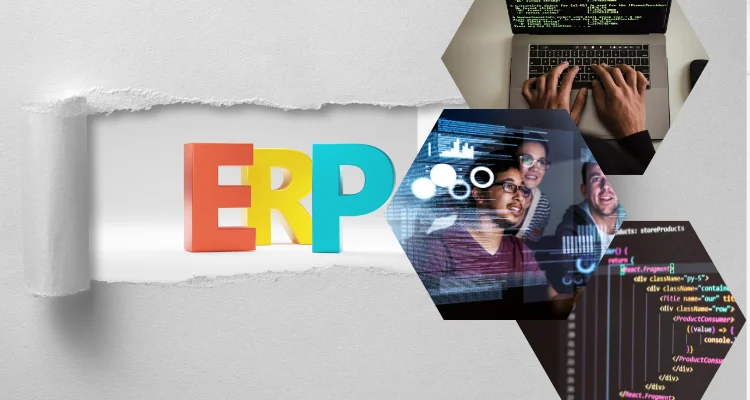
Enterprise Resource Planning (ERP) has become a vital tool for businesses globally. The benefits of cloud based ERP in Pakistan are now being recognized, leading to an increase in adoption rates. This article will explore the emerging ERP trends in Pakistan and what we can expect in 2023.
As businesses continue to evolve, so does their need for efficient and effective systems. The adoption of ERP systems in Pakistan is a clear sign of this evolution. These systems not only streamline operations but also help in making informed decisions. Furthermore, they offer a centralized platform where all business functions can be managed. As we approach 2023, the trend towards ERP systems is expected to grow, with businesses seeking out the best retail ERP software in Pakistan. This growth is driven by the need for improved efficiency, better data management, and enhanced decision-making capabilities.
Enterprise Resource Planning (ERP) Trends in Pakistan 2023
The rise of cloud ERP
Cloud ERP is a trend that has been gaining momentum across the globe, and Pakistan is no exception. The flexibility, cost-effectiveness, and scalability offered by cloud-based ERP systems make them an attractive option for businesses of all sizes. Moreover, they provide real-time access to data, making decision-making quicker and more efficient.
Notably, cloud ERP systems are easy to implement, with many providers taking care of the process for you. This convenience has made it a preferred choice, especially for small businesses that may lack resources for complex installations. Additionally, cloud ERP is more scalable, providing an advantage in data storage and access. This adaptability means that as your business grows, your system can grow with you without the need for costly upgrades or overhauls. Lastly, the innovation offered by such systems is key to business growth.
AI-powered ERP systems
Artificial Intelligence (AI) is another trend that is reshaping the ERP landscape in Pakistan. By infusing AI into ERP systems, businesses can automate repetitive tasks, improve accuracy, and generate insights from data. This can lead to increased productivity and better business outcomes.
Moreover, AI-powered ERP systems can offer predictive analytics, enabling businesses to forecast future trends and make strategic decisions. For instance, these systems can analyze historical sales data to predict future demand, helping companies optimize their inventory levels and avoid stockouts or overstocking. They can also identify patterns in financial data, providing valuable insights for budgeting and financial planning. Furthermore, AI can enhance the user experience by offering personalized recommendations and automating routine tasks. Hence, by leveraging AI, ERP systems can transform raw data into actionable intelligence, empowering businesses to stay ahead of the competition.
Personalization in ERP
Personalization is becoming increasingly important in the world of ERP. For surely, businesses are looking for ERP solutions that are tailored to their specific needs and processes. In 2023, we can expect to see more customized ERP solutions that cater to the unique requirements of different industries.
Additionally, an ERP system’s personalization capabilities can enhance user experience, increase employee productivity, and streamline business operations. With customizable dashboards, users can easily access the tools and data they need most. Therefore, a personalized ERP solution is not just about aesthetics; it’s a strategic tool that can significantly improve your business performance.
Integration capabilities
Integration is a key feature of the best retail ERP software in Pakistan. Businesses need an ERP system that can seamlessly integrate with other tools such as CRM, e-commerce platforms, and accounting software. This helps streamline processes and improve efficiency.
Moreover, integrating various systems through ERP can lead to a centralized source of data, eliminating data silos and promoting accurate, real-time information flow across departments. This enhances decision-making and fosters collaboration within the organization. Thus, the integration capabilities of an ERP system significantly contribute to operational efficiency
Two-tier ERP
A two-tier ERP strategy involves using two ERP systems – one at the corporate level and another at the subsidiary or divisional level. This allows businesses to leverage the strengths of different ERP systems and provides greater flexibility.
This approach is especially useful for large companies with multiple departments or branches. The top-tier ERP can manage core business functions, while the second-tier ERP handles more specific tasks for individual units. This way, each part of the business gets a system that fits its needs perfectly. It also makes it easier to implement new changes or updates in one area without disrupting the whole company. Moreover, it can lead to cost savings, as companies only pay for the features they need in each tier.
Digital transformation
Digital transformation is driving the adoption of ERP systems in Pakistan. Businesses are embracing digital technologies to improve their operations and customer experiences. An ERP system plays a crucial role in this transformation by integrating various business functions and providing a single source of truth.
In this era of digitalization, an ERP system’s ability to centralize data from different departments is invaluable. It eliminates the need for multiple software solutions, thus reducing operational complexity and cost. Moreover, it facilitates real-time data analysis, enabling businesses to make informed decisions promptly. Plus, with advanced analytics and reporting capabilities, businesses can gain deep insights into their operations, helping them identify areas for improvement and growth. Ultimately, digital transformation powered by ERP systems can lead to increased efficiency, productivity, and profitability.
The future of ERP in Pakistan
The future of ERP in Pakistan looks promising. The trends discussed above indicate that businesses are recognizing the value of ERP systems and are ready to invest in them. As businesses continue to buy best retail ERP software in Pakistan, we can expect to see a rise in the adoption of cloud-based ERP, AI-powered systems, personalized ERP solutions, integrated systems, and two-tier ERP strategies.
The comparison of best retail ERP software options in Pakistan provides businesses with the information they need to make informed decisions about their ERP investments. It’s an exciting time for ERP in Pakistan, and it will be interesting to see how these trends evolve in 2023.
